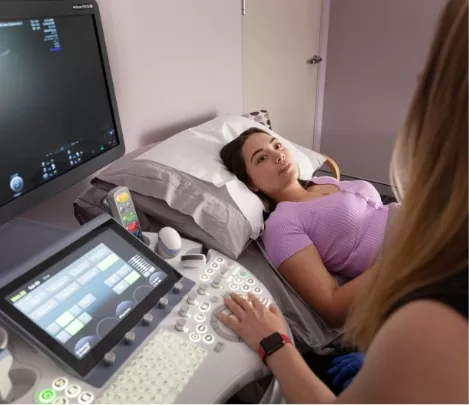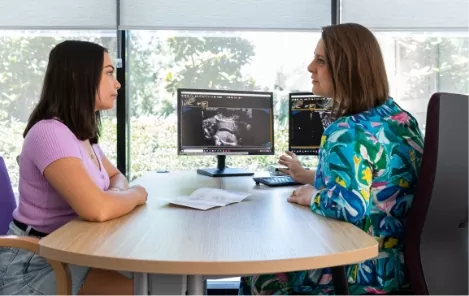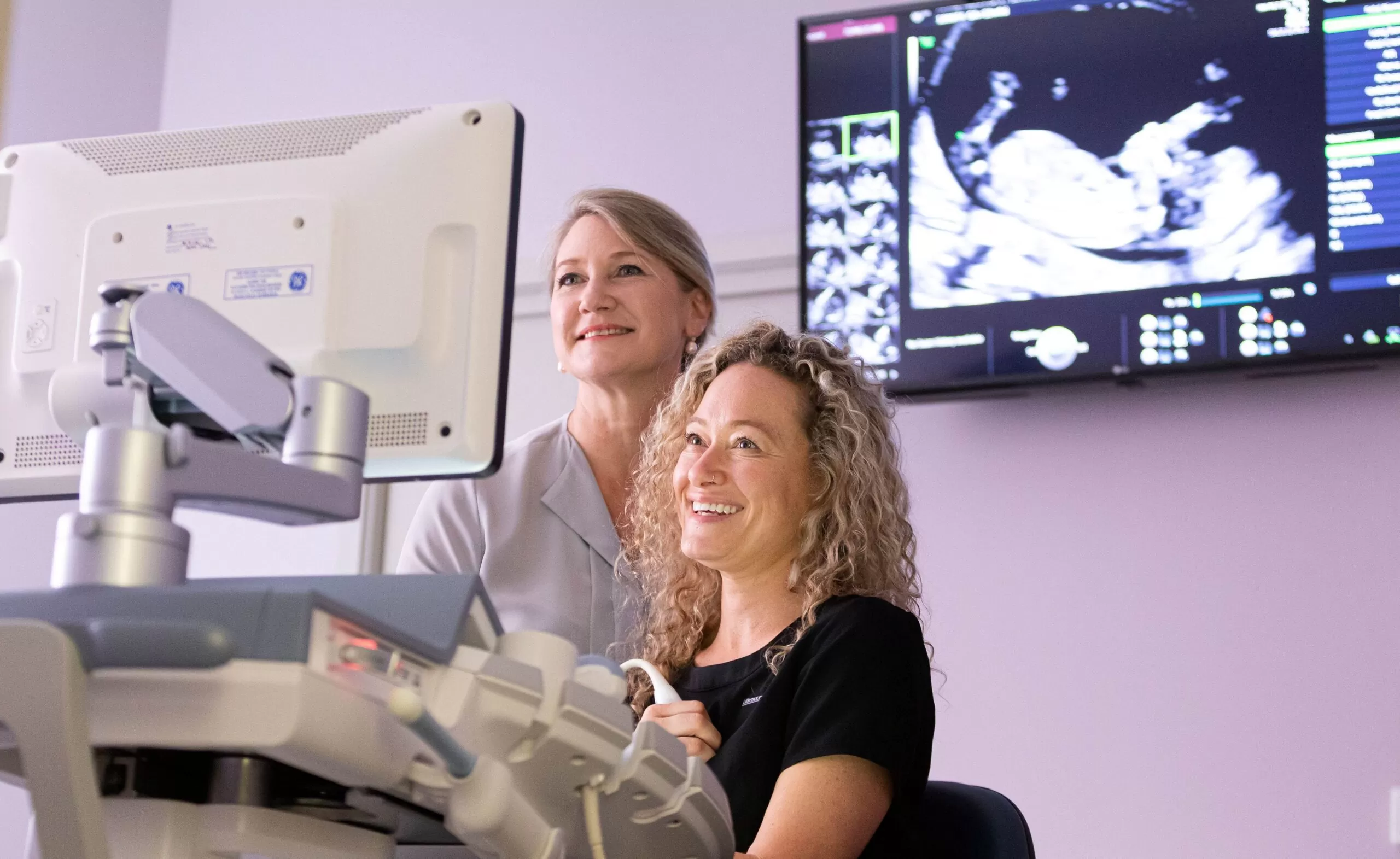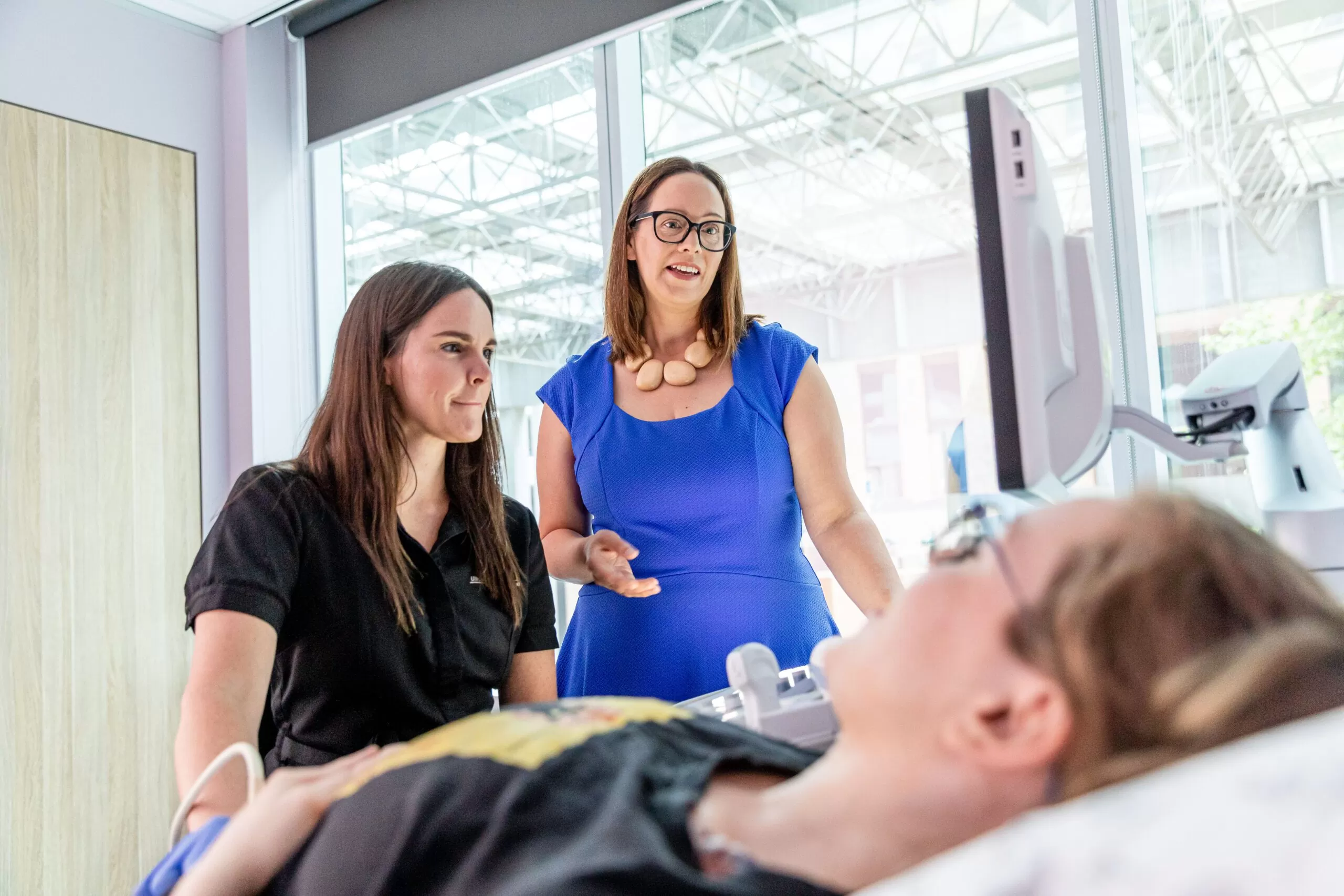Pre-natal DNA Paternity Testing
What is Prenatal Paternity Testing?
Prenatal paternity testing provides pregnant women with information about the likely biological father of the baby. We all inherit our genes from our biological parents — half from our mother, and half from our father. Prenatal Paternity Testing compares the baby’s genetic pattern to a possible biological father to determine if there is a match. If a genetic match is found, then this is proof of a biological relationship.
The Ultrasound Care team are specialists in paternity testing and have several methods of obtaining samples for paternity testing at different times during the pregnancy.
What Invasive Paternity Testing options are available at Ultrasound Care?
Women can choose to have an invasive procedure like chorionic villus sampling (CVS) at 11-14 weeks gestation or amniocentesis at 15-40 weeks gestation, though these tests are associated with a small risk of miscarriage following the procedure.


What Non-Invasive Prenatal Paternity Testing options are available at Ultrasound Care?
A safer option for pregnant women is Non-Invasive Prenatal Paternity Testing. It involves DNA samples being taken from the pregnant mother and possible fathers. It is usually done via a blood test from the pregnant woman and either a blood test or cheek swab on the man. This test is over 99% accurate and can be performed from 10 weeks of pregnancy and there is no risk to the fetus.
Other important information about Prenatal Paternity Testing
Non-invasive paternity testing does not provide any other genetic information about the fetus (e.g., gender or inherited genetic diseases). If you think this information is important, please talk to your Ultrasound Care Obstetrician or Genetic Counsellor about the other tests we have available.
Due to the technology currently used for Non-Invasive Prenatal Paternity Testing, the test cannot be performed where the pregnant woman is related to the potential father, and it is not yet reliable in twins.
How long do the Non-Invasive Prenatal Paternity Testing results take?
The test results will usually take approximately three to four weeks to be received by Ultrasound Care and for you to be informed. On occasion, there is not enough cell-free DNA from the pregnancy in the sample so blood recollection may be required; in this case the results will take another 14 days to be received but you will not have to pay for the second test.
Confidentiality
As with any test you have at Ultrasound Care, your results are completely confidential. The specific details about how you want to receive results can be discussed further with your Ultrasound Care clinician when you are at your appointment.


Can an exact date of conception be determined accurately?
Many women have questions about the date of conception. However, unless it is an IVF pregnancy (where the date of embryo transfer is known) it is not always easy to determine. Usually if a woman has regular 28 day menstrual cycles, then she will ovulate 14 days before the next period is due. Ovulation is the time when conception can take place because that is when an egg is released.
Unfortunately, most women do not ovulate on the same day each month. Also, sperm can live in the body 3-5 days after intercourse has taken place, and this can give a wide range of possible conception dates. It should also be noted that ultrasounds are only accurate to +/- 5-7 days in early pregnancy, and up to 3 or 4 weeks in the third trimester.
Therefore, due dates are not an accurate tool for determining conception as they are only an estimation, and only 5% of women give birth on their estimated due date.
If you are seeking the estimated date of conception for paternity reasons, and intercourse with two different partners took place within 10 days of each other, then paternity testing is the best way to be sure of who the father of the unborn baby is.
When can Paternity Testing be done?
Anytime after 10 weeks gestation. This is when most women have enough cell free DNA in their circulation from the pregnancy.
Can I use the DNA test results in court?
Non Invasive Prenatal Paternity Test results are not currently admissible in court. The science is reliable, but courts need to verify the chain of custody from the patient to the laboratory and this test is too new to have had the chain of custody verified.
How do I make an appointment for confidential paternity testing?
The Ultrasound Care team of Obstetricians and Genetic Counsellors are experts in paternity testing and will be able to assist you with advice regarding your options for paternity tests.
To arrange for a consultation, please call your local Ultrasound Care practice, we have locations all around Sydney, and speak to our team to make an appointment.





